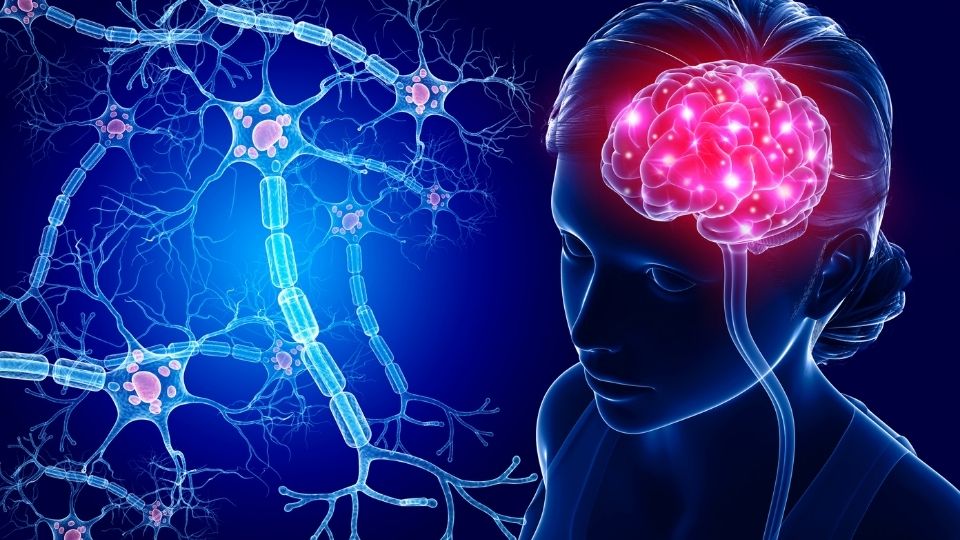The Heart Is Where Brain Health Begins: What Science Has to Say About Lifestyle Choices That Can Prevent Dementia
Alzheimer's disease alters entire lives, not just memory. Millions of people cope with its encroaching mist, and millions more work as caregivers, enduring hardship and heartache every day. Experts estimate that those numbers will triple by 2050, and the issue that keeps coming up in clinics and families alike is: What can we do to stop it?

It turns out that the answer might literally be found in our hearts as well as in our minds.
The Position of the World Health Organization: Prioritizing Lifestyle
The World Health Organization (WHO) has responded to the escalating dementia issue with a global approach focused on lifestyle, which is considerably more accessible than medications or costly therapies.
The WHO has developed evidence-based dementia prevention guidelines after delving into decades of brain health research. The outcomes are unexpectedly hopeful and refreshingly realistic. The main point? You underestimate the amount of control you have on your cognitive future.
Are Vascular Dementia and Alzheimer's Disease Two Sides of the Same Coin?
Dementia is not a single condition. It is a general term for a group of neurodegenerative diseases, the most prevalent of which being vascular dementia and Alzheimer's disease. In the past, these were considered distinct creatures, one associated with blood vessel damage and the other with enigmatic brain tangles. However, recent research indicates that they might be closely related.
What ties them together? flow of blood. More specifically, the condition of the arteries that supply the brain with oxygen.
The brain benefits from what is good for the heart.
The most recent research reveals something startlingly obvious: dementia risk is increased by the same variables that cause heart attacks and strokes, such as high blood pressure, high cholesterol, smoking, obesity, and diabetes.
Why? Because your brain suffers when your arteries suffer. Damaged or constricted blood arteries prevent oxygen-rich blood from reaching the brain, which starves brain cells, impairs memory, and permits the buildup of toxic proteins, which are the same ones found in Alzheimer's disease.
On the other hand, strong blood flow to the brain from healthy arteries appears to assist clear the tangled proteins that can obstruct memory and thought processes. To put it briefly, your mind benefits from what feeds your heart.
Habits Supported by the WHO to Help Prevent Dementia:max_bytes(150000):strip_icc()/These-7-Healthy-Habits-Could-Lower-Your-Risk-of-Dementia-New-Study-Suggests-c0dba1af6c1b439385c31a4eae7bcaf6.jpg)
The WHO highly advises the following: basic, evidence-based routines that you can truly follow, without the need of snake oil or fad supplements:
Get Your Body Moving — Often
Walk briskly, swim, dance in your kitchen, or do anything else that makes your heart race for at least 150 minutes every week. Even for people who already have minor memory loss, exercise is the most effective and well-researched way to reduce the risk of dementia.
Consume Food as You Would Love Your Brain
Improved brain health is regularly associated with a plant-forward, Mediterranean-style diet. This implies:
Aim for at least five servings of fruits and vegetables each day.
Nuts, beans, and whole grains
Good fats, such as olive oil
Moderate consumption of seafood or fish
Steer clear of foods that damage blood vessels and exacerbate inflammation:
Grain processing (white rice, white flour)
Avoid or Give Up Smoking
Smoking accelerates cognitive deterioration and destroys blood vessels. Your body and brain will benefit from stopping virtually instantly, therefore it is never too late to do so.
Reduce the Alcohol
Alcohol consumption should be kept to a minimum, according to the WHO, particularly if cognitive signs are already present. As far as brain health is concerned, there is no recognized safe threshold.
Extra Routines That Could Improve Brain Function
Although data is still being gathered, lifestyle "bonuses" that promote brain resilience are becoming more and more popular:
Good sleep (strive for 7–9 hours of regular, rejuvenating sleep)
meaningful connections (cognitive deterioration is connected to loneliness)
Social interaction (dinner parties, reading groups, and volunteer work all matter)
Although these behaviors may not seem like medicine, they are in a sense. They aid in the development of what scientists refer to as cognitive reserve, a type of mental buffer that can postpone or even stop dementia symptoms from manifesting even when the brain is undergoing changes.
But what if my family has a history of dementia?
The shocking but optimistic reality is that you can significantly lower your risk of acquiring full-blown dementia even if you currently have modest cognitive impairment or are genetically predisposed to Alzheimer's.
Consistency is crucial. These are a way of life, not temporary solutions. Consider them daily brain-protection practices rather than a "cure."
The Bottom Line: The Heart Is Where Brain Health Begins
The conclusion is unmistakable: cognitive deterioration is preventable. The part of you that remembers birthdays, laughs at old jokes, and recognizes the faces of your loved ones is also taken care of when you take care of your heart through movement, food, rest, and connection.
Put another way, living as though your heart counts is the best way to safeguard your mind. Because more than ever it does.
What's Your Reaction?




















